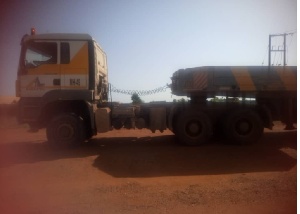Africa News of Wednesday, 2 April 2025
Source: www.ghanawebbers.com
Nigeria's Illegal Gold Trade - Elites and Bandits Are Working Together
Illegal mining in Nigeria is harming the economy and causing violence.
In the north-west region, strategic minerals include granite, gypsum, kaolin, laterite, limestone, phosphate, potash, silica sand, and gold. The Nigeria Extractive Industries Transparency Initiative estimates that legal mining contributed N814.59 billion (US$527 million) over 15 years. Earnings peaked in 2021.
Nigeria's Minister of Solid Minerals, Dele Alake, stated that illegal miners support banditry. Recently, Edo North senator Adams Oshiomhole claimed retired military officers coordinate illegal mining nationwide.
In a recent study, I explored links between banditry and gold mining in two north-west states. My research included interviews with 17 people from 11 gold mining communities in Katsina and Zamfara states. Participants included miners, community leaders, drivers, residents, and security agents.
They reported that bandits collaborate with elites to conduct illegal gold mining. This undermines peace in the region. My paper analyzed how elites exploit mineral resources and its impact on violence. I also examined the state's response to illegal mining and suggested pathways to lasting peace.
For over four decades, wealthy individuals have dominated gold mining in these communities. Intense competition led mine owners to hire bandits for protection against rivals. This pattern has persisted for two decades.
Today’s minefield owners provide bandits with weapons and supplies in exchange for protection of their gold pits. Many wealthy mine owners influence local politics. Some miners work for politicians or traditional rulers who own gold mines.
Interviewees mentioned influential figures in government or business but did not disclose names for safety reasons.
Violence stems from competition over mining locations and funding armed groups' activities. With funds from illegal activities, bandits can recruit new members and launch attacks.
From 2010 to 2023, there were 1,615 incidents of banditry resulting in 4,201 deaths in Katsina and Zamfara states according to Armed Conflict Location data.
Gold trading occurs within a network of buyers and sellers familiar with each other. Respondents noted that criminals involved in illegal mining have strong connections domestically and internationally.
The illicit economy extends through Chad, Niger, Libya, and Algeria with foreign networks involved as well. Bandits sell gold to merchants who are often business elites from other Nigerian states.
These traders typically sell gold in Diffa (Chad), Agadez (Niger), Tripoli (Libya), or Algiers (Algeria). Some transport it to Benin.
The government's approach to the illicit gold trade has been inadequate. There is a failure to monitor miners effectively at sites meant for licensed operations.
To address this issue effectively requires enforcing laws and increasing accountability measures. Large areas of north-west Nigeria remain ungoverned.
The federal government should improve border policing by enhancing security infrastructure and intelligence gathering capabilities. Advanced contraband-detection technologies like spectroscopy should be introduced at land borders to analyze materials' chemical compositions effectively.











